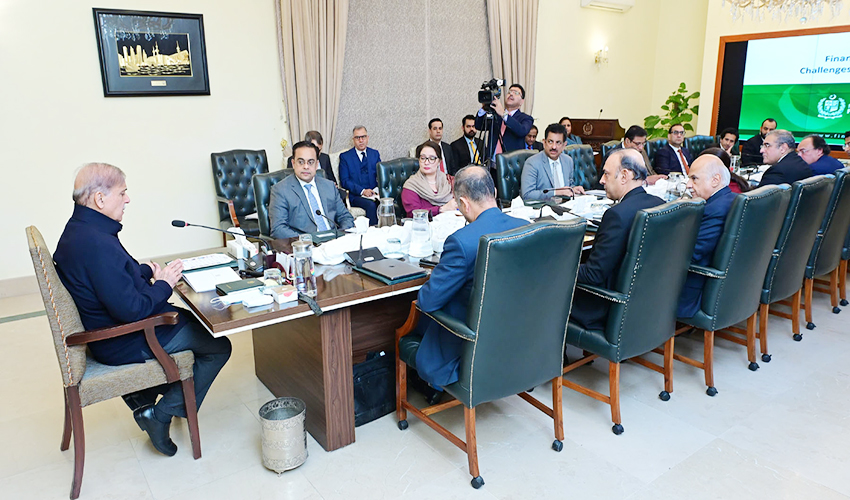Following his election as Prime Minister for the second time, Shahbaz Sharif has wasted no time in addressing the pressing economic issues facing Pakistan.
In a high-level meeting convened under his chairmanship, Sharif emphasized the urgent need for an economic recovery plan, making it clear that revitalizing the country’s economy is the government’s top priority.
During the meeting, detailed discussions were held on various aspects of economic revival, with a particular focus on the role of taxation and fiscal policies.
Sharif emphasized the government's unwavering commitment to improving the country's economic landscape, declaring it as the top priority of his administration. He underscored the urgent need for an emergency action plan to jumpstart economic recovery, recognizing the critical role of the business community in driving growth.
Notably, he highlighted the importance of providing relief to the business community and ensuring timely tax refunds, a move exemplified by the clearance of tax refunds totaling Rs 65 billion by the Federal Board of Revenue (FBR).
Recognizing the significance of fostering a conducive environment for economic growth, the premier underscored the need for dialogue with international financial institutions such as the IMF, while also emphasizing the vital role of domestic exporters and value-adding industries in driving economic progress.
Moreover, Sharif outlined a comprehensive strategy aimed at enhancing transparency and efficiency within government institutions, particularly the Federal Board of Revenue, through automation initiatives.
Additionally, he emphasized the imperative of rationalizing government expenditures, including the privatization of non-performing state-owned enterprises to alleviate the burden on the national economy.
In a bid to promote entrepreneurship and empower the youth, the prime minister called for the formulation of strategic plans to support small and medium-sized enterprises, signaling a commitment to fostering a conducive environment for economic growth and job creation.
Furthermore, the establishment and reinforcement of the Special Investment Facilitation Council underscore Sharif's commitment to creating a business-friendly environment conducive to investment and economic stability.
In sum, Sharif's directives reflect a proactive approach towards economic governance, with a strong emphasis on promoting fiscal discipline, enhancing transparency, and facilitating private sector-led growth to steer Pakistan towards sustainable economic prosperity.



























